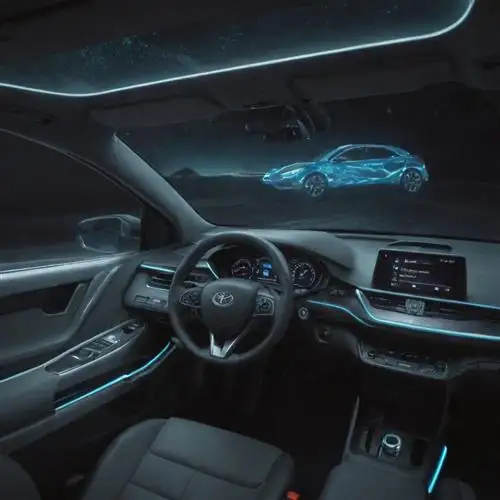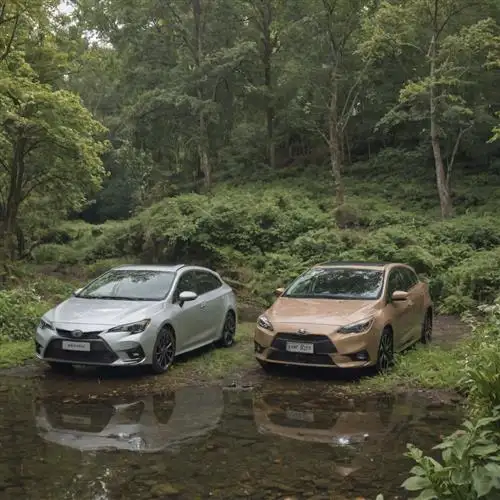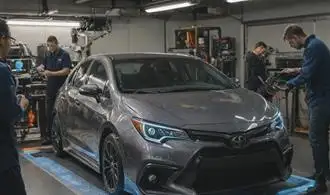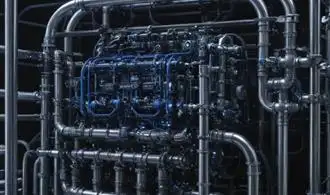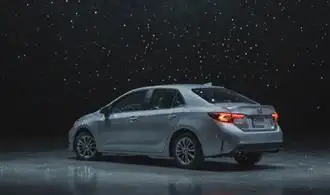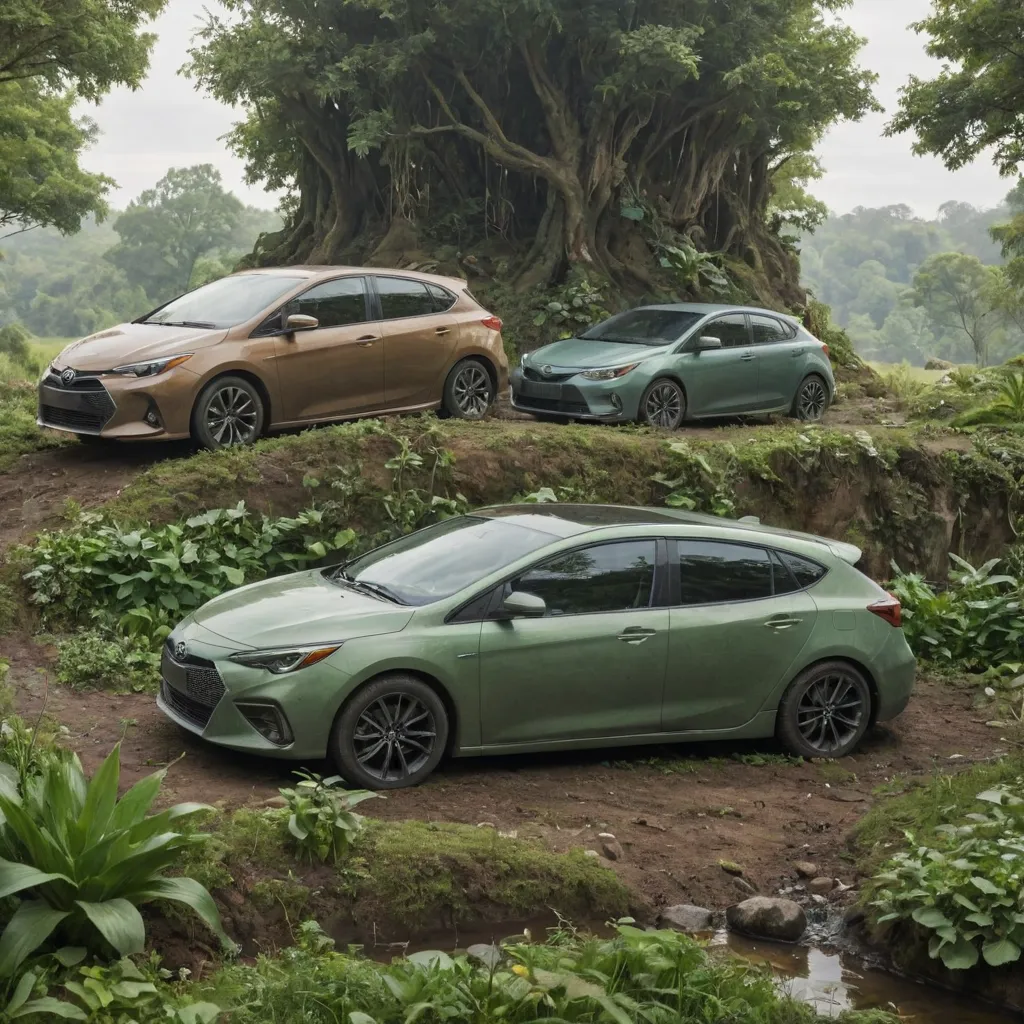
Design Aesthetics Toyota Corolla vs Ford Focus
The Toyota Corolla and Ford Focus are two of the most popular compact cars on the market, each with its own distinctive design aesthetic. When it comes to the visual appeal of these vehicles, it's clear that the Corolla and Focus take different approaches, catering to the preferences of different types of drivers.
The Toyota Corolla's design is characterized by a sleek, aerodynamic profile that exudes a sense of refinement and sophistication. The car's flowing lines and well-proportioned silhouette create a harmonious and visually appealing look. The front end features a bold, expressive grille that lends the Corolla a commanding presence on the road, while the rear design is clean and understated, with neatly integrated taillights.
In contrast, the Ford Focus takes a more dynamic and expressive approach to its design. The car's angular lines, sculpted body panels, and bold design elements give it a sporty and aggressive appearance. The front fascia, with its distinctive grille and sharp, swept-back headlights, conveys a sense of forward momentum, while the rear design features a pronounced spoiler and distinctive taillights that add to the Focus's overall visual impact.
One of the key differences between the design aesthetics of the Toyota Corolla and Ford Focus is the emphasis on functionality versus style. The Corolla's design prioritizes practicality and efficiency, with a focus on optimizing aerodynamics and creating a spacious, comfortable cabin. In contrast, the Focus places a greater emphasis on bold, expressive styling, with design cues that are intended to evoke a sense of sportiness and excitement.
Performance Prowess Toyota Corolla vs Ford Focus
When it comes to performance, the Toyota Corolla and the Ford Focus have distinct attributes that cater to different driving preferences. The Corolla, known for its reliability and efficiency, offers a more balanced and composed driving experience, while the Focus leans towards a sportier and more engaging ride.
The Corolla's powertrain options, which include a 1.8-liter four-cylinder engine and a hybrid variant, prioritize fuel economy and a smooth, predictable power delivery. The engine's responsiveness and the continuously variable transmission (CVT) ensure a comfortable and efficient commute, making the Corolla an ideal choice for daily driving and city navigation. While the Corolla may not be the quickest car in its class, its well-tuned suspension and steering provide a confident and controlled feel on the road, allowing for a composed and predictable handling experience.
In contrast, the Ford Focus boasts a more dynamic and engaging driving character. Its available turbocharged EcoBoost engines, including a 1.0-liter three-cylinder and a 2.0-liter four-cylinder, deliver a more spirited and responsive performance. The Focus also benefits from its well-tuned chassis and suspension, which provide a more engaging and agile handling experience, particularly when navigating winding roads or tackling tight corners. The Focus's steering is also more direct and communicative, adding to the overall driving excitement.
However, it's important to note that the Focus's sportier nature may come at the expense of some ride comfort, particularly on rougher road surfaces. The Corolla, on the other hand, offers a more compliant and composed ride, making it a better choice for those who prioritize a smooth and comfortable driving experience over outright performance.
Technological Advancements Toyota Corolla vs Ford Focus
When it comes to modern automotive technology, both the Toyota Corolla and Ford Focus offer a range of cutting-edge features that enhance the driving experience. The Toyota Corolla, known for its reliability and efficiency, has consistently embraced technological innovations to stay ahead of the curve. Conversely, the Ford Focus, a stalwart in the compact car segment, has also made strides in integrating advanced technologies into its design.
Starting with the Toyota Corolla, the latest models boast an impressive suite of driver-assistance features. The Toyota Safety Sense system, standard across the Corolla lineup, includes advanced technologies such as pre-collision warning, automatic emergency braking, lane departure alert, and dynamic radar cruise control. These features work in tandem to provide a heightened level of safety and peace of mind for the driver and passengers.
Complementing the safety technology, the Toyota Corolla also offers a modern infotainment system. Equipped with a touchscreen display, the system provides seamless integration with smartphone platforms like Apple CarPlay and Android Auto, allowing users to access their favorite apps, make hands-free calls, and receive turn-by-turn navigation. Additionally, the Corolla's available wireless charging capability eliminates the need for cumbersome cables, further enhancing the overall convenience for the driver.
On the other hand, the Ford Focus has also made significant strides in technological advancements. One of the standout features of the Focus is its available adaptive cruise control system, which not only maintains a set distance from the vehicle ahead but can also bring the car to a complete stop in traffic and resume acceleration when the road is clear. This advanced technology helps to reduce driver fatigue and enhance safety, particularly in congested driving conditions.
Furthermore, the Ford Focus boasts an impressive array of connectivity features. The available SYNC 3 infotainment system offers a responsive touchscreen interface, seamless smartphone integration, and voice-activated controls. This allows drivers to access a wealth of information, entertainment, and communication features without compromising their focus on the road.
When it comes to fuel efficiency, both the Toyota Corolla and Ford Focus have embraced technological advancements to improve their performance. The Corolla's available hybrid powertrain, which combines a gasoline engine with an electric motor, delivers exceptional fuel economy without sacrificing the driving dynamics. Similarly, the Focus lineup offers a range of efficient engine options, including turbocharged EcoBoost units, that help to minimize fuel consumption and emissions.
Comfort and Convenience Toyota Corolla vs Ford Focus
When it comes to comfort and convenience, the Toyota Corolla and Ford Focus offer distinct experiences. The Corolla is renowned for its smooth and comfortable ride, thanks to its soft and supple suspension. The cabin is spacious and the seats are designed for long-distance comfort, with ample leg and headroom, even for taller passengers. The climate control system effectively maintains the desired temperature, and the available features, such as heated seats and a power-adjustable driver's seat, enhance the overall comfort level.
In contrast, the Ford Focus provides a more dynamic and engaging driving experience, with a tighter suspension that delivers a sportier feel on the road. While the Focus may not offer the same level of pure comfort as the Corolla, it still provides a pleasant and well-appointed cabin. The seats are supportive and offer good lateral support, making them suitable for both daily commutes and longer journeys. The available features, such as dual-zone automatic climate control and a heated steering wheel, add to the overall convenience and comfort.
When it comes to storage and cargo space, the Corolla's generous trunk and configurable rear seats offer ample room for luggage, groceries, and other belongings. The available 60/40 split-folding rear seats provide flexibility in accommodating larger items. The Focus, on the other hand, has a slightly smaller trunk, but it can still comfortably handle the storage needs of most drivers and passengers.
In terms of technology and connectivity, both the Corolla and the Focus offer a range of features to enhance the driving experience. The Corolla's available touchscreen infotainment system is user-friendly and responsive, providing access to features like Apple CarPlay and Android Auto. The Focus also offers a modern infotainment system with similar connectivity options, ensuring seamless integration with your smartphone and various media sources.
Sustainability and Efficiency Toyota Corolla vs Ford Focus
When it comes to sustainability and efficiency, the Toyota Corolla and Ford Focus have long been rivals in the compact car segment. Both vehicles offer impressive fuel economy and environmentally-friendly features, but the devil is in the details. Let's dive deeper into how these two models stack up in terms of sustainability and efficiency.
The Toyota Corolla has long been lauded for its exceptional fuel economy and low emissions. With its efficient engine options and aerodynamic design, the Corolla can achieve impressive EPA estimates of up to 31 city/38 highway mpg. The Corolla also features an available hybrid variant, which takes efficiency to the next level with its seamless integration of electric and gas-powered components.
In contrast, the Ford Focus, while a capable compact, falls slightly behind the Corolla in terms of raw fuel efficiency. The Focus's EPA estimates range from 26 city/36 highway mpg for the base model, to 30 city/40 highway mpg for the available EcoBoost engine. While respectable, the Corolla's efficiency numbers give it a noticeable edge.
Longevity and reliability are also key factors in sustainability. The Toyota Corolla has long been renowned for its exceptional durability and low maintenance costs, with many models easily surpassing the 200,000-mile mark with proper care. This translates to a lower environmental impact over the vehicle's lifetime, as fewer resources are required for repairs or replacement.
The Ford Focus, while a solid performer, does not quite match the Corolla's reputation for bulletproof reliability. While the Focus is a capable and well-engineered vehicle, it has faced some recalls and reliability concerns over the years, which can impact its long-term sustainability.



